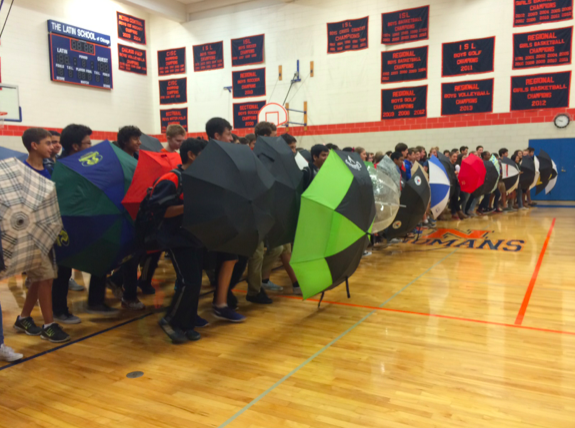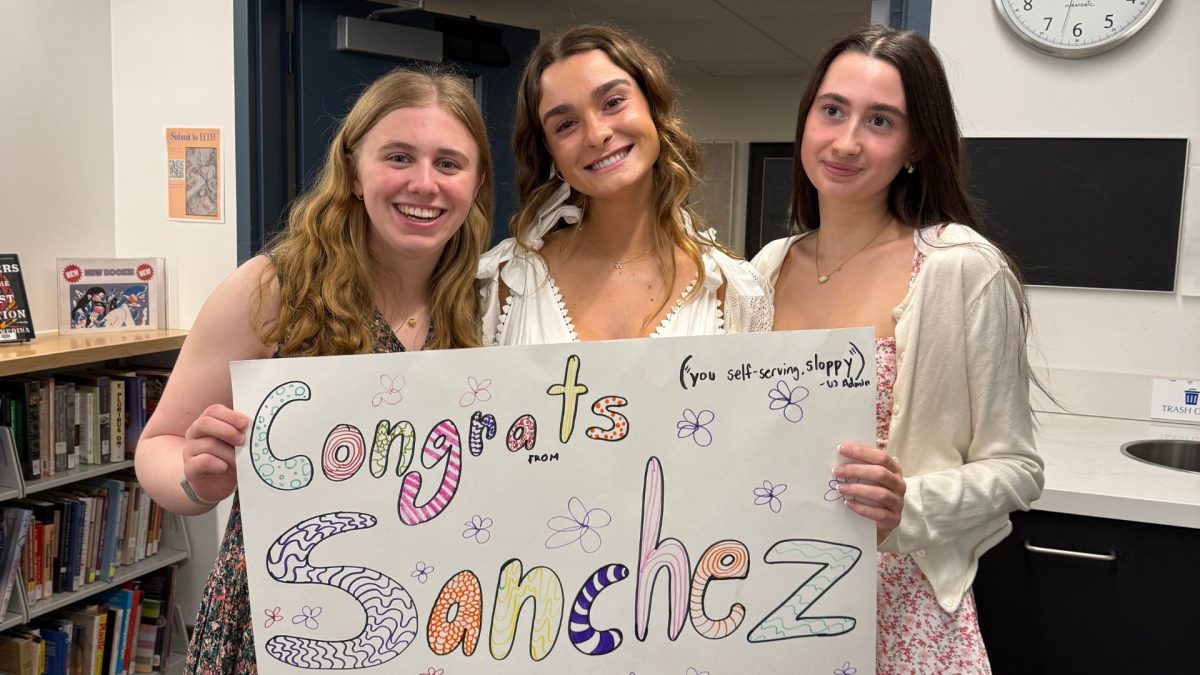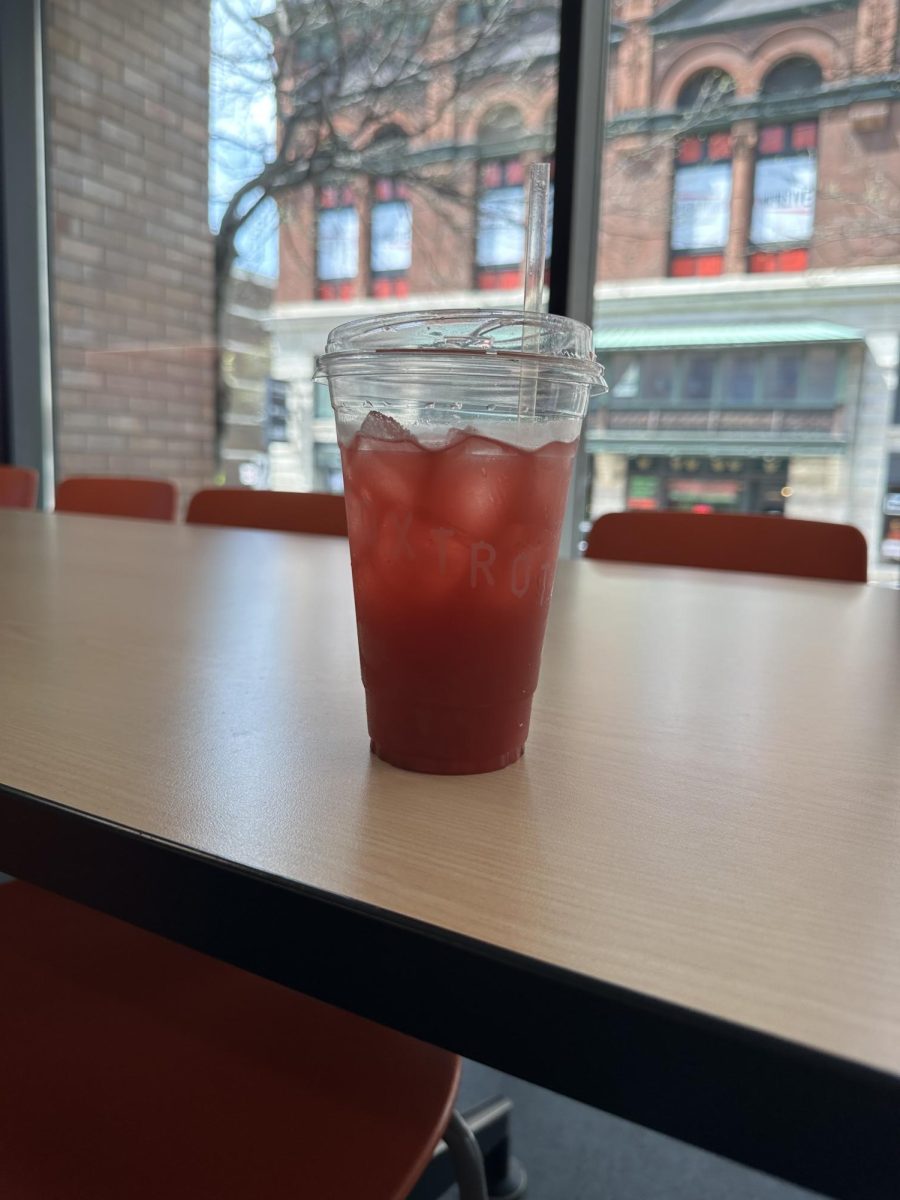By Madeline Cohen
Armed with umbrellas, freshmen made their way down to the field gym to recreate history. Global Cities: Power and Creativity classes gathered during an advisory block a couple of weeks ago to put themselves in the shoes of ancient Greek fighters, participating in the first ever grade-wide simulation of ancient Greek warfare.
Under the direction of their teachers, students arranged themselves into the rectangular ancient Greek military formation known as the phalanx (a major area of study in the Athens unit.) Everyone brought an umbrella to use in place of weaponry, and when they were opened, each of the four orderly rows of people stretched the entire width of the gym. The activity began simply with an order to march, but became progressively more difficult as students were instructed how to turn and angle themselves, position their “shields,” and switch between different rows of the formation. After this was completed, some older students and teachers joined the simulation as “obstacles,” standing still and bracing themselves against massive group charges towards them.
The activity culminated in one final portion, a competition that required the entire grade to divide into two separate formations to see which was more effective. Formations were judged on three criteria and could be awarded up to twenty points for each. The first was speed: each formation had to move across the gym to reach a certain point as quickly as possible. The second was cohesion: each formation needed to remain in a tight, neat order even as they were trying to move quickly. The last category was volume: each formation had to shout in an attempt to be intimidating as the Greeks had done in battle. A few teachers also served as “vultures,” deducting points and picking off any students who fell out of formation (what would have been a casualty in reality) as well as discipline judges who also deducted points for any students who were not following orders.
This competition was fairly successful, although after the totals were completed, both formations ended with low scores—one even resulting in a negative number. The losing group’s punishment: pushups.Why was this activity completed? Ms. Landis, one of the Global Cities teachers, gave her answer. “The purpose of the simulations is always to put students in the shoes of the people we’re studying, so they think about the topic from the inside, as someone experiencing it, rather than from the outside, as someone observing it. If you want to understand the details of particular battles (for example, why it was remarkable for the Athenians to charge the Persians at a run at the Battle of Marathon), you first need to understand what it’s like to fight that way (in our example, how hard it is to keep formation while moving at speed).”
Ms. Landis was instrumental in making this activity a reality, calling the demo equipment “basically a big arts and crafts project for me this summer.” A friend of hers from grad school, now a teacher at University of Iowa, has done this exercise in the college quad with her Greek Civilization classes and got the idea from her professor, J. E. Lendon, at University of Virginia. His original instructions include the usage of PVC pipe, “recruiting a friendly retired army drill sergeant,” and, to quote his original document, “failure and great hilarity,” although these were modified to fit Latin’s needs. Most of the difficulties in making this simulation a reality came down to the logistics—scheduling and finding time, reserving space, getting traffic guards (it was initially supposed to be done in the park but was moved to the gym because of weather), and sending out instructions.
Although this did take a lot of work, it should become easier for the classes to come now that it has already been completed once. Global Cities teachers are planning on running it again in upcoming years, especially after the class discussions it sparked and generally positive feedback it received. Teachers have been discussing how it went and possible improvements and have considered taking out the speed component (which caused the formations to fall apart quickly) and focusing more on cohesion.
“I’m hoping this will become a fun tradition that each new ninth grade class can look forward to,” remarked Ms. Landis. “I think it has the same benefits as most simulations: that it gives students a new and ‘closer’ perspective on what they’ve been reading about.”
]]>




























































